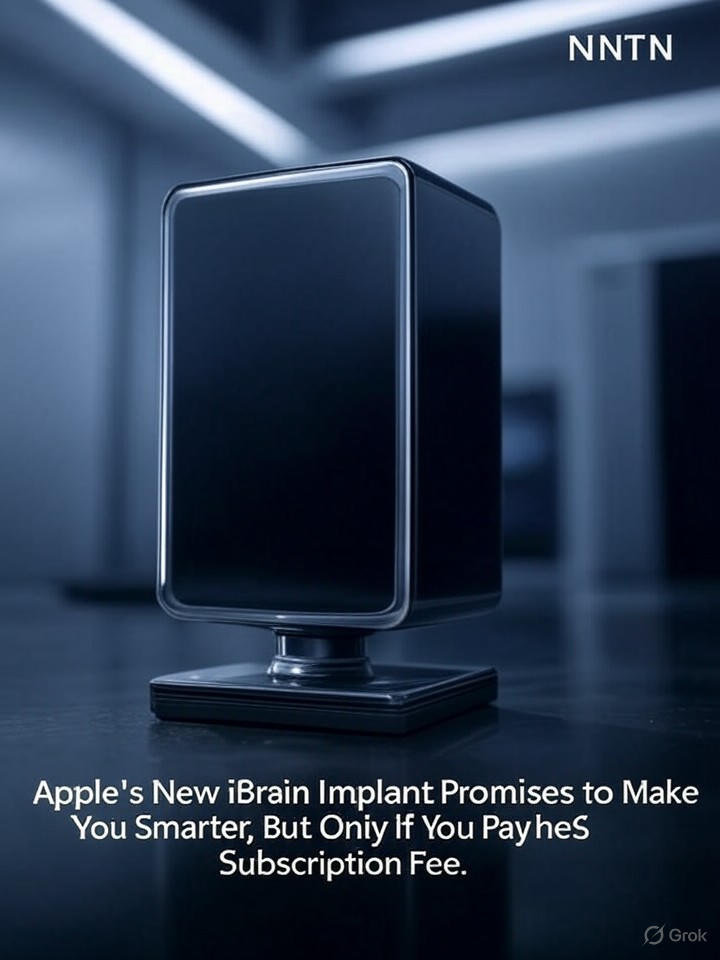CUPERTINO, CA – In a move that's equal parts innovative and insidious, Apple has announced the iBrain, a revolutionary neural implant designed to boost your IQ faster than you can say "Siri, what's my credit card number?" The tiny device, surgically inserted into your gray matter, promises to turn even the dimmest bulb into a veritable Einstein – provided you're willing to shell out $19.99 a month for the privilege.
At the glitzy launch event, CEO Tim Cook beamed as he demonstrated the iBrain's capabilities. "Imagine accessing genius-level thoughts on demand," he enthused, while a live demo showed a volunteer suddenly solving complex quantum physics problems. But when the subscription lapsed mid-equation, the poor sap reverted to pondering why cats hate water. It's Apple's way of ensuring that intelligence isn't just a one-time purchase – it's a lifestyle commitment.
Critics are already crying foul, dubbing it the "paywall of the mind." One bioethicist quipped, "This isn't augmentation; it's cognitive ransomware." Apple, undeterred, insists it's all about user choice. Free tier users get basic thoughts like "I'm hungry" or "Traffic sucks," but premium subscribers unlock deep insights, such as "The meaning of life is 42" or "How to finally understand your tax return."
The iBrain isn't without its quirks. Early testers reported side effects including spontaneous urges to buy overpriced accessories and an inexplicable loyalty to the Apple ecosystem. "I tried thinking about switching to Android," one user confessed, "but my brain just blue-screened." It's as if Apple has found a way to monetize your very synapses, turning your skull into a subscription-based server farm.
Privacy concerns? Apple waves them away with their trademark nonchalance. "Your thoughts are safe with us," Cook assured, right before announcing iBrain's integration with iCloud for "seamless mind backups." Forget Big Brother; this is Big Apple watching your every neuron fire. And if you miss a payment? Say goodbye to coherent sentences – you'll be left mumbling about the weather like a malfunctioning chatbot.
Competitors are scrambling. Google is rumored to be developing a rival implant that runs on ads, bombarding your brain with sponsored thoughts like "This epiphany brought to you by Coca-Cola." Meanwhile, Elon Musk's Neuralink team is reportedly pivoting to a model where intelligence is tied to cryptocurrency fluctuations – because nothing says 'stable genius' like volatile Bitcoin prices.
In the end, the iBrain forces us to ask: Is enhanced cognition worth the cost? As one potential customer put it, "I'd love to be smarter, but not if it means my brain gets repo'd." Apple, ever the optimist, suggests that with iBrain, the sky's the limit – as long as your credit limit agrees.

